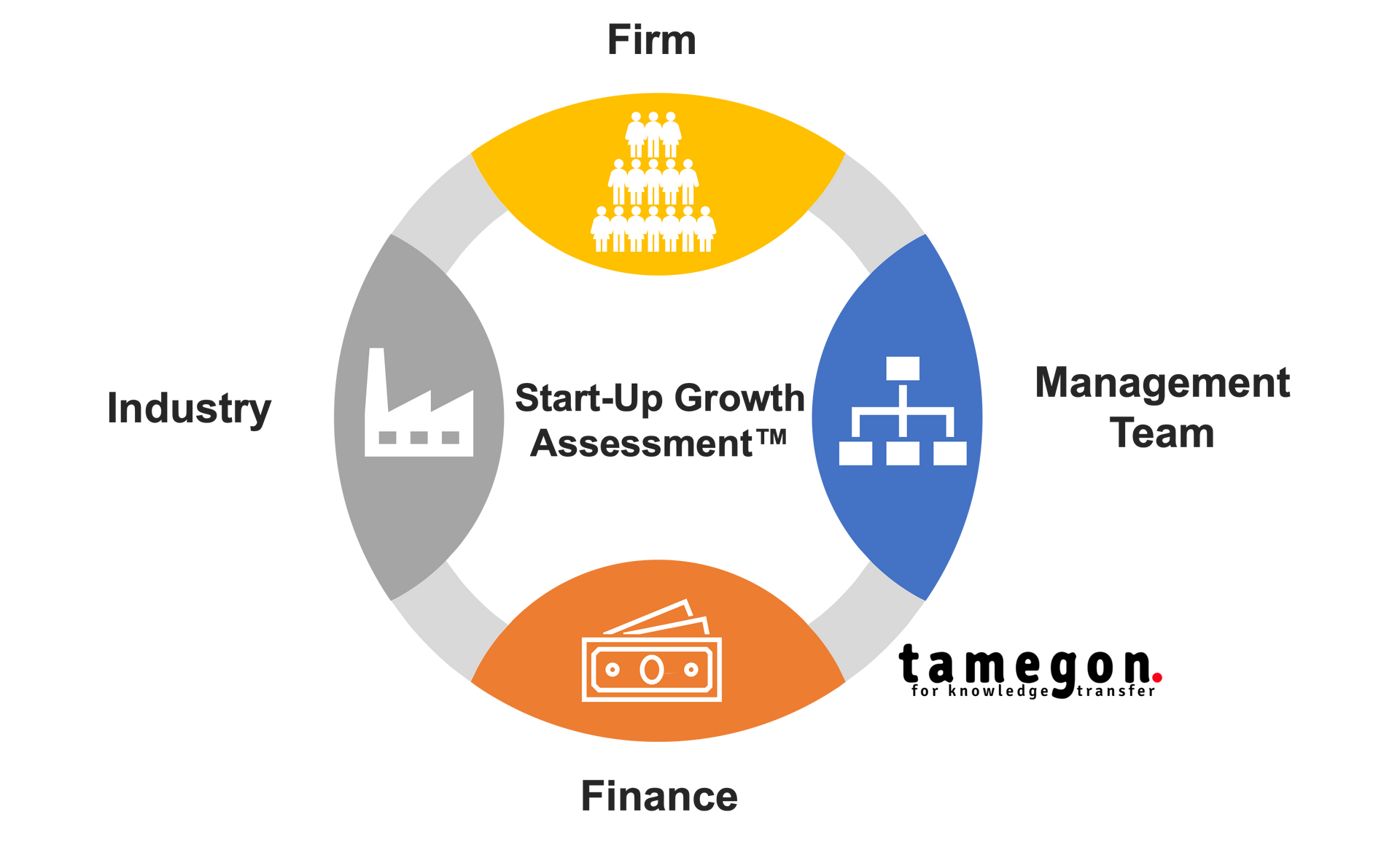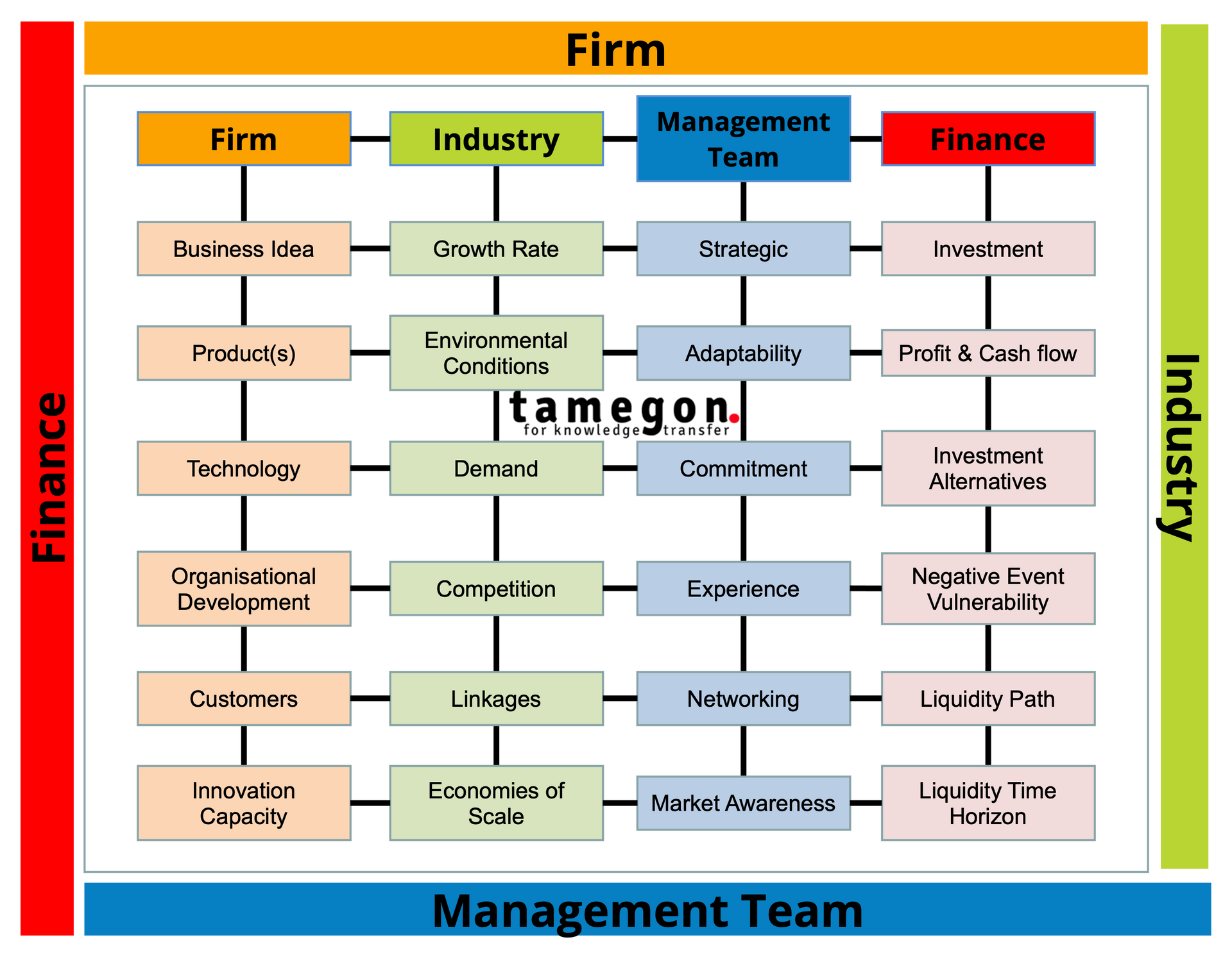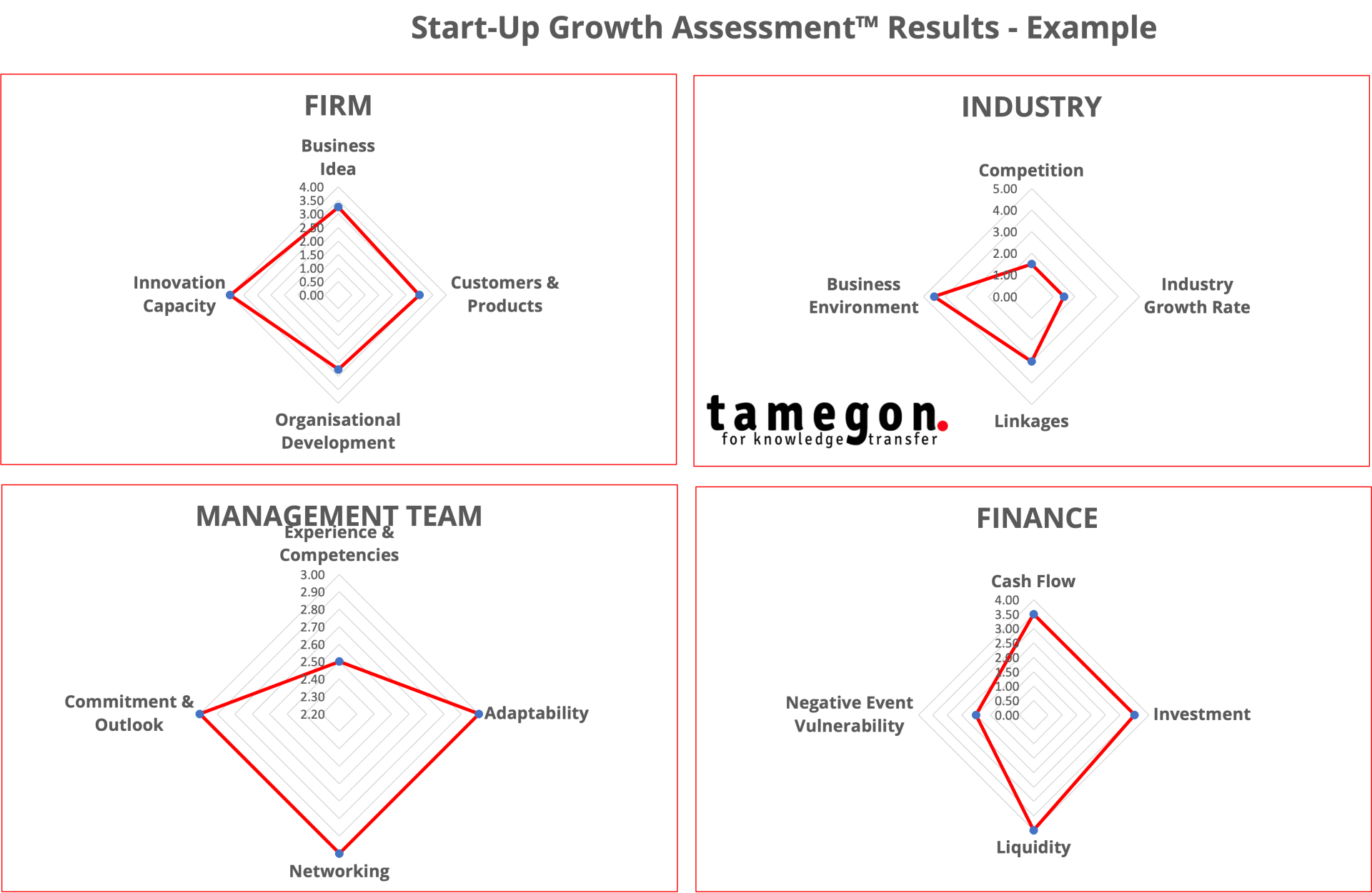Start-Up Growth Assessment™
Take our Start-Up Growth Assessment™ to review internal and external areas of your business, identify areas for improvement and increase growth prospects.
Review internal and external parts of your start-up
Identify specific areas for improvement
Gain useful insights
Design actions
Small competitive enterprises are the life-blood of any economy with a significant market mediated sector. According to the latest figures supplied by the Department of Trade and Industry (DTI), more than 99% of businesses in the U.K. economy (without taking into account the sector for electricity, gas and water) were small-to-medium-enterprises (SMEs) defined as businesses which employed two hundred and fifty or fewer employees. Of these, many are very small. Indeed, in the U.K. today, of the 5.47 million active businesses, over 3.1 million were sole traders or partners without employees. As well as being the embodiment of competitiveness – through their lack of market power and exposure to rivalry – these firms are important as vectors of change and innovation.
Contributions to world economies by SMEs include:
- Providing opportunities for innovation and breeding grounds for new business ventures,
- Producing national output and exports,
- Acting as a transfer agent from big business to the consumers of products and services,
- Creation of competition (amongst small businesses and with large enterprises) and outlets for entrepreneurial activities.
Small firms however, face significant competitive challenges. Consensus is that these challenges stem from the fact that small firms are resource impoverished resulting to significant disadvantages when competing head-to-head against large firms. It is also argued that the economies of scale large organisations can achieve threaten the survival of small firms by decreasing their negotiation power – although independence is valued, scale is rewarded.
Despite the many competitive challenges that SMEs face, in particular those in concentrated industries, SMEs and young enterprises do have some advantages such as,
- Customer and market knowledge,
- Close social relations with customers,
- Product, service, and geographical specialisation, and
- Flexibility.
Based upon the assumption that technological change is one of the main drivers of economic growth, great expectations have been particularly placed on the growth potential of new technology-based ventures. New technology-based firms not only have the potential of creating new industries, but they also provide innovation inputs to established industries and contribute to their revitalisation.
There are several growth-related management challenges that are specific to young technology-based firms. The technical knowledge possessed by employees and management plays a prominent role for the identification of business opportunities in technology-based firms. Due to the inherent uncertainty of technical knowledge development and the uncertainty of the value that technical knowledge has for customers, technology-based firms face more uncertainty than many other types of firms.
In the young firm this uncertainty is exaggerated by the volatile nature of inexperience and the pervasive rate of technological change. The rate of technological change makes it necessary to continually identify new opportunities for growth, at the same time that the inexperienced firm has to deal with the increased complexity of a larger organisation.
Our Start-Up Growth Assessment™ allows established start-ups and SMEs operating for more than 2 years to gain a holistic understanding of their business and its environment. The discovery process allows the start-up to review internal processes and systems, consider the management team's strengths and weaknesses, evaluate their industry's growth projections and make sure that they have the appropriate investment and finances in place to achieve their growth ambitions.

As part of the process, the start-up management team take the survey enabling them to gain insights around areas of risk including finance and investment, skills and experience of the management team, growth and prospects of their industry as well as further review their business idea through the problem-solution-benefit framework.


The Start-Up Growth Assessment™ comprises 38 probing questions allowing any established start-up to review internal and external factors of their business and design actions and plans. The four themes of our Start-Up Growth Assessment™ are shown below.
Interested in improving the growth prospects of your start-up?
We are here to help!
Contact us to discuss how our start-up growth assessment tool can allow you to gain useful insights across internal and external areas of the business.

